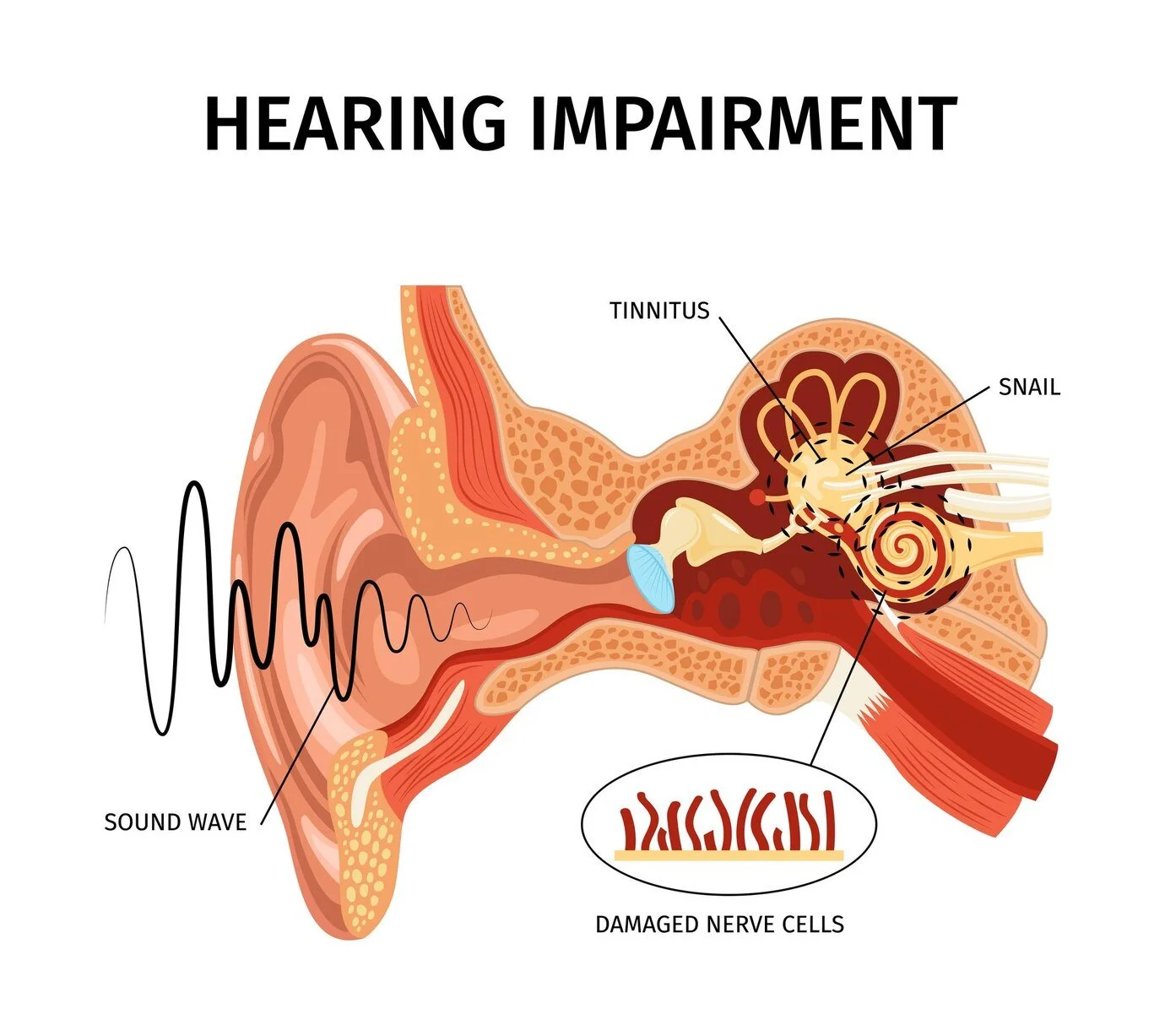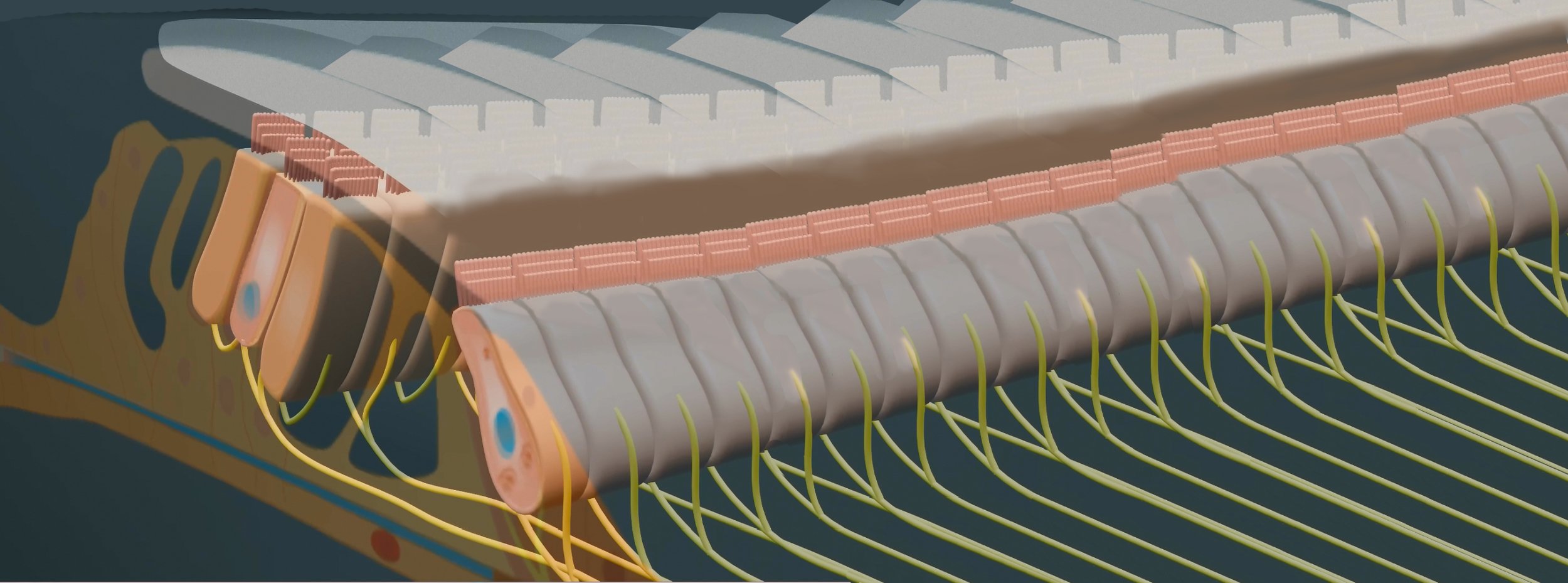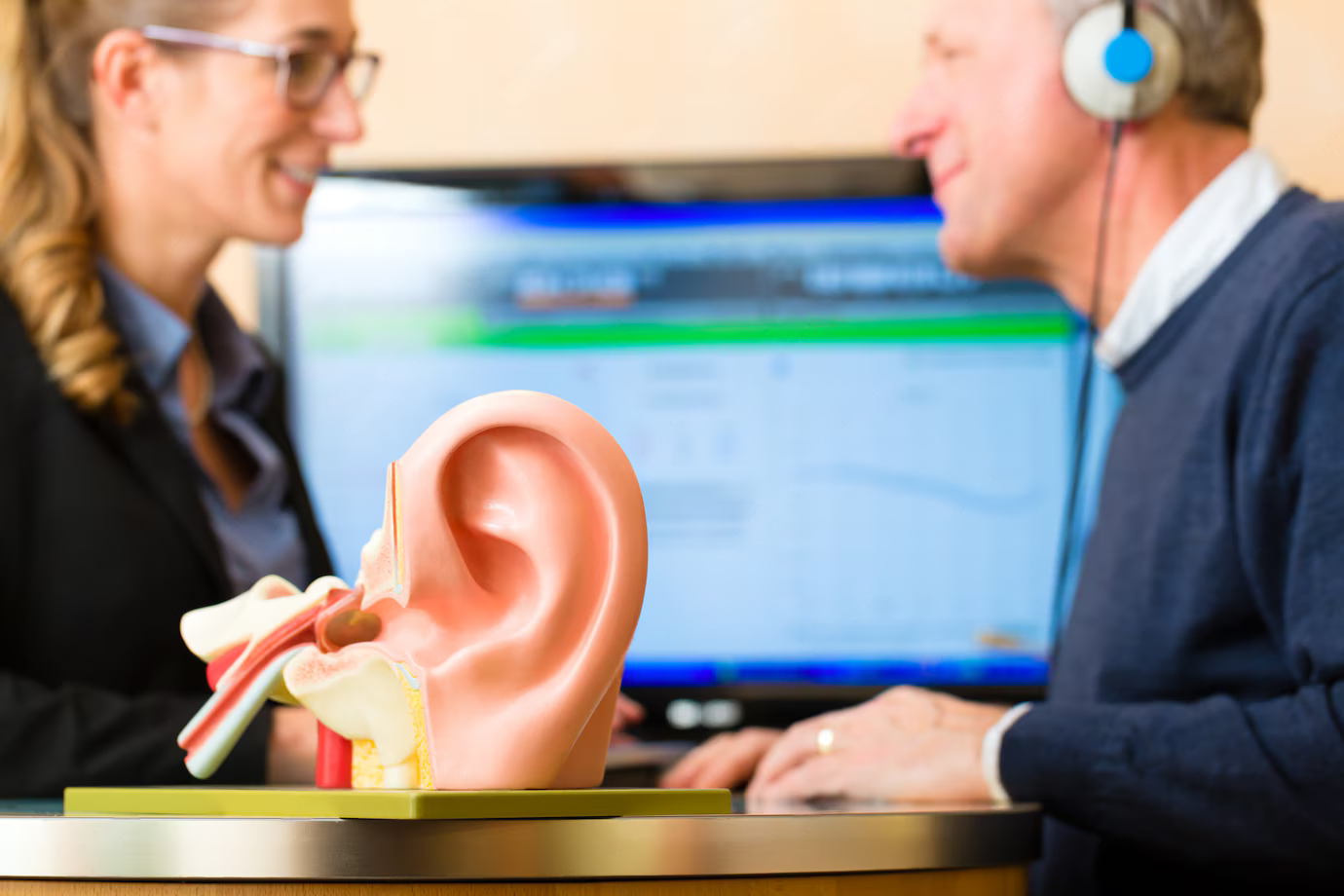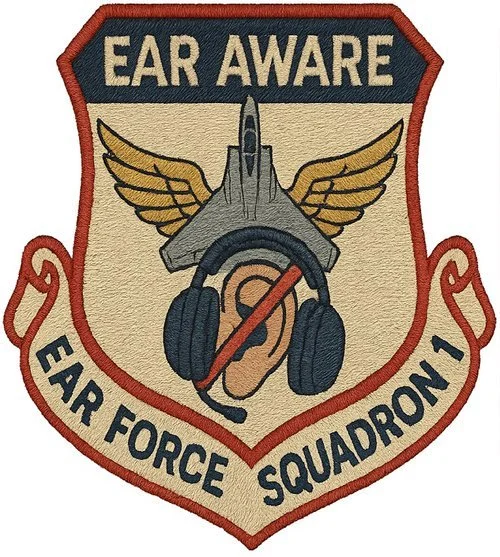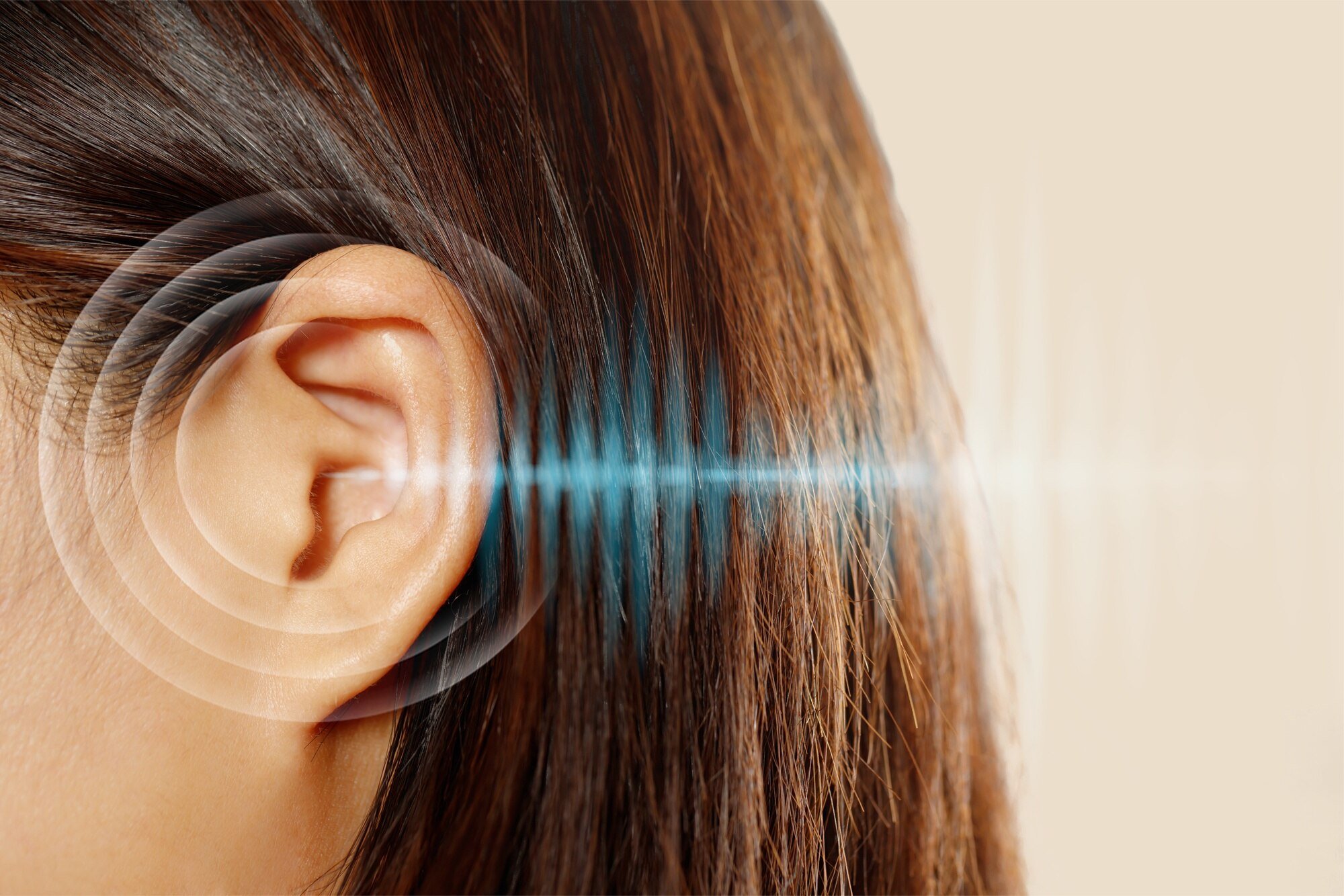
Tune In to Safe Listening
Hidden Hearing Loss: The Damage You Can’t Detect
Your ears might still “hear” sound—but your brain can’t make sense of it. That’s hidden hearing loss.
Even if you pass a hearing test, loud noise can silently damage the nerve connections in your inner ear. You may notice trouble understanding speech in noisy places or that music sounds flat or muddy. This condition, called cochlear synaptopathy, often goes undiagnosed because it doesn’t show up on standard tests.
It’s a reminder: hearing loss isn’t always obvious—but it can be permanent. That’s why safer sound practices are more important than ever.
-
Here’s why: Each of your 3,500 inner hair cells is wired to the brain by about 10 nerve connections (called synapses). These synapses give you clarity and detail—what scientists call sound discernment. But even before loud noise destroys hair cells, it silently destroys these synapses. It is like losing pixels in a picture. You lose resolution before you lose detection.
The culprit? An overload of chemical release from loud sound that literally burns out the nerve connections before hair cells themselves are damaged. It’s like over-watering your plants, causing roots to die.
You could lose most of your synapses and still “pass” a hearing test. But your ability to recognize voices, instruments, and subtle sound cues is already compromised.
That’s hidden hearing loss—and it’s more common than anyone realized. Click Here to Learn More.
Loud Music: A Silent Threat to Your Hearing
Loud music may feel exciting, but it can slowly and silently damage your hearing. Inside your ears are just 3,500 tiny hair cells that help you hear — that’s very few compared to the 100,000 hairs on your head or the millions of cells in your eyes. And once these hearing cells are damaged, they don’t grow back.
If you lost one of these cells every day, you'd be out by the age of 10. Luckily, they don’t die on their own — but loud sounds, especially above 85 decibels, can destroy them. That includes concerts, clubs, or even loud headphones.
Noise is the #1 cause of hearing loss. The damage adds up slowly, and by the time you notice, it might be too late. Protect your ears now — because you only get one set.
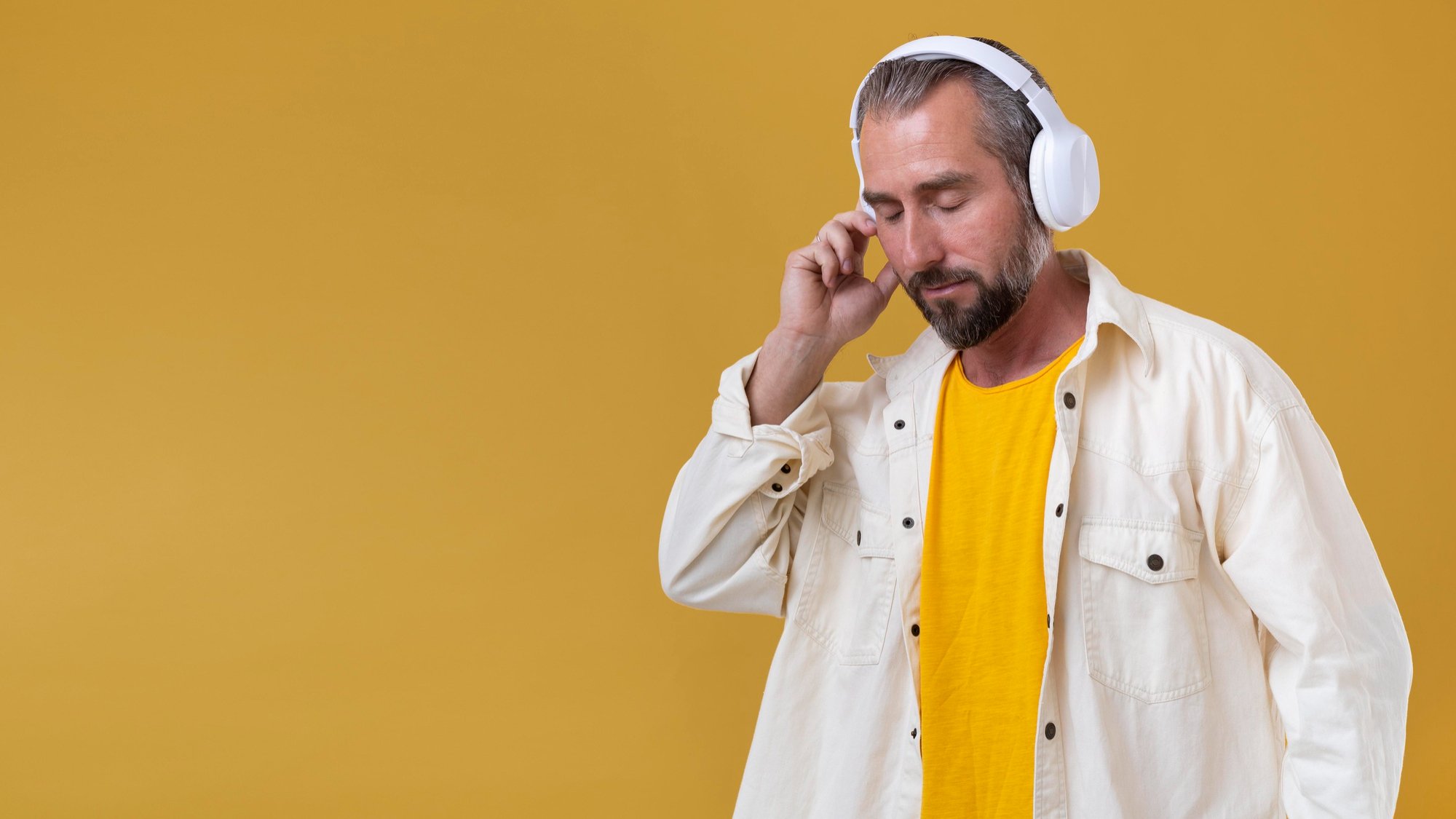
The Hidden Trauma Behind That Post-Concert Ringing
“You know that muffled sensation and ringing after a concert? It’s like traumatic ear cell coma. Some re-awake, some don’t”
Every time you hear ringing in your ears or feel like your hearing is “off” after loud music, it means some of your hearing cells or their nerve connections have been damaged. It’s like a powerful wave of sound crashing through your inner ear.
You might lose a few cells—or hundreds or even thousands—depending on how loud the sound was. And once those cells are gone, they don’t grow back.
That means just one loud concert or a single gunshot could cause hearing loss that lasts the rest of your life. Protect your ears now — you don’t get a second chance.
Ask ChatGPT
JOIN THE NETWORK OF EAR AWARE PROFESSIONALS
We’re creating a global team of hearing experts to help people understand how to protect their ears. EarAware clears up confusing topics like hidden hearing loss, sets easy-to-follow safety guidelines, and brings attention to serious hearing health issues.
We’re also building a free app with useful tools—a sound level meter, a hearing test, and a map where people can tag loud or quiet places (like restaurants or clubs). You can use it to protect yourself and help others. To make it fun, you can earn points, badges, and ranks by taking action—like using earplugs, sharing tips, or teaching friends about hearing safety.
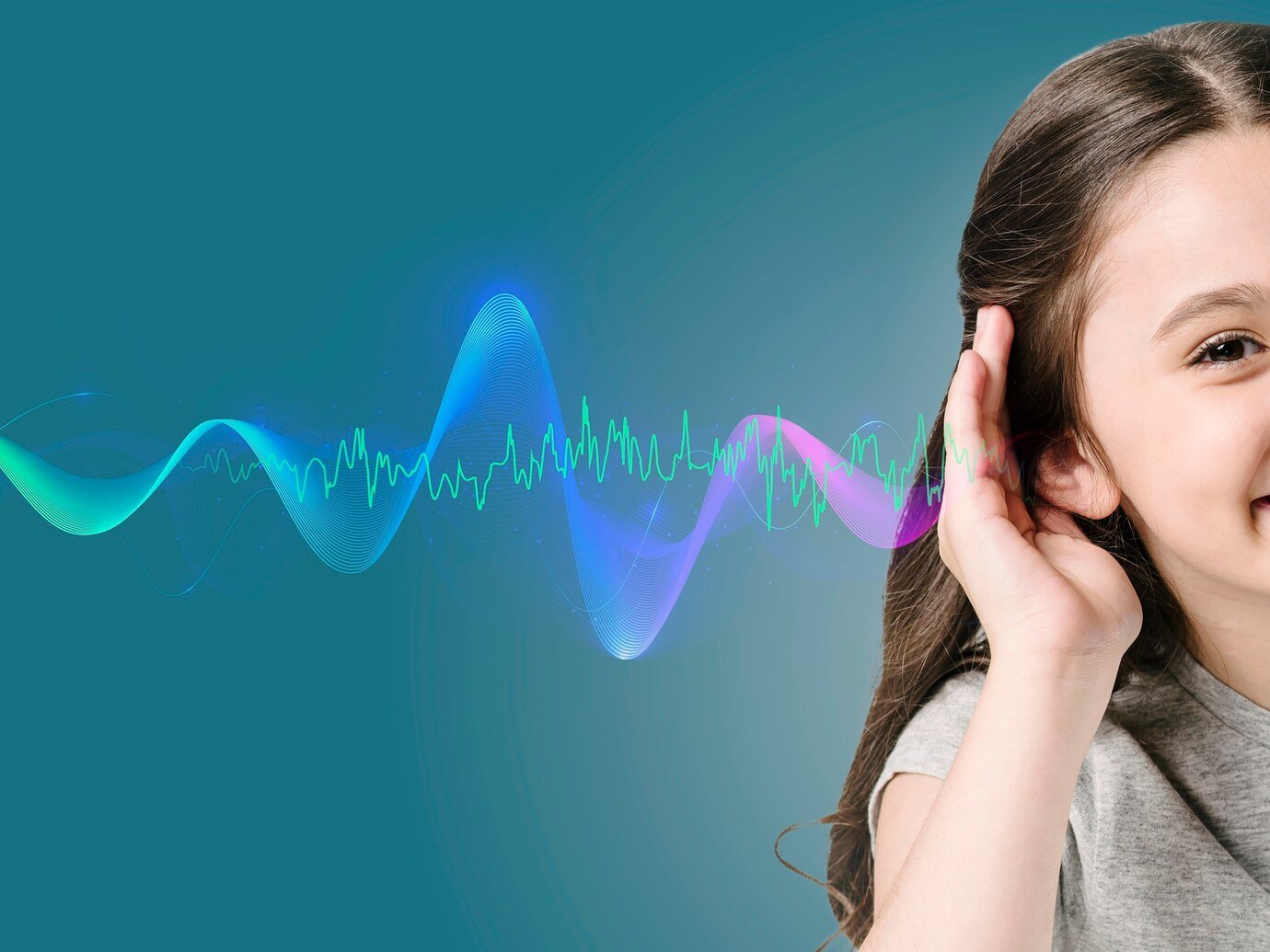
To Musicians, Sound Engineers, Venue Operators, and Support Staff who feel 85 dB just isn’t realistic:
We get it. We truly do. We know you're trying to create an unforgettable experience—where your music cuts through the crowd noise, the drum kit, and the stage monitors. We also know how important your hearing is to your craft and career. That’s why a team of sound engineers, audiologists, and hearing scientists have come together to find smart, practical solutions that protect hearing without killing the vibe.
We're not asking you to turn it all the way down—just to tune it smarter. Click the link to explore new tools, tips, and strategies that make your sound safer and stronger.
Smart Steps for Sound Health. We hope for you to:
Protect your ears—and help others too. Start by getting a hearing test (in a clinic is best, but phone apps can help too). Use decibel meter apps like SoundPrint to check how loud places are. Sounds under 70 dB are safe. At 85 dB and above (like a blender), damage can start. 100 dB (like a jackhammer) is only safe for 15 minutes without earplugs. Over 120 dB (like a jet or fireworks) can cause instant, permanent hearing loss.
Loud noise can damage tiny cells in your ear, leading to hearing loss, ringing (tinnitus), sound sensitivity, dizziness, or even stress and anxiety. Keep volume low, even with earbuds, and wear earplugs when needed—just make sure they fit well and have a good noise rating.
If you suddenly lose hearing, don’t wait—see a doctor right away. It could be an emergency. Get involved by sharing stories, spreading awareness, and earning rewards. Hearing experts and sound engineers can also get EarAware certified and be part of our trusted network.

